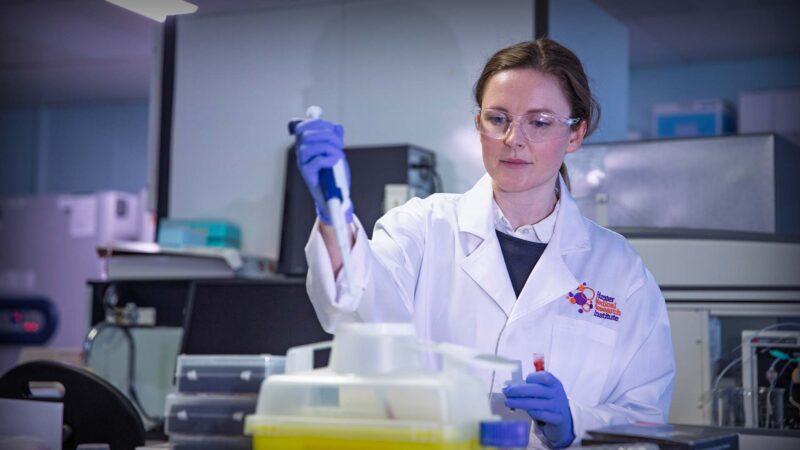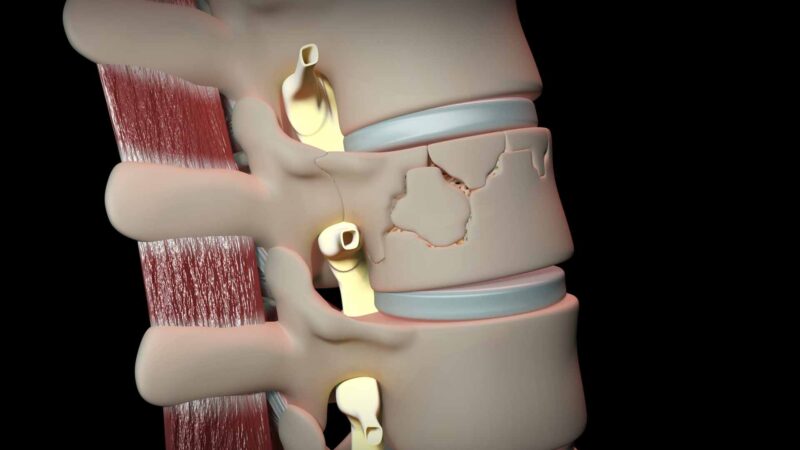DNA REPAIR ON THE FANCONI ANAEMIA PATHWAY
Associate Professor Wayne Crismani
Laboratory Head, DNA Repair & Recombination
St Vincent’s Institute of Medical Research,
Melbourne, Australia
RESEARCHER PROFILE
Filmed in Melbourne, Australia | August 2025
Associate Professor Wayne Crismani is an internationally recognised expert in DNA repair, with a particular focus on Fanconi anaemia (FA)—a cancer-predisposition and bone marrow failure syndrome marked by extreme sensitivity to DNA damage. Based at St Vincent’s Institute in Melbourne, he leads a research program dedicated to understanding the genetic, cellular, and reproductive consequences of FA. He is currently supported by a Victorian Cancer Agency Mid-Career Fellowship and funding from the National Health and Medical Research Council.
His career spans academia and industry across Australia, Europe, and the United States. He has contributed to several advances in FA genetics, including the identification of new functions of FA genes, particularly in reproduction, development of isogenic cell models, and use of high-throughput functional and screening assays. He has also demonstrated that FA is under-diagnosed in Australia, which has major consequences for these individuals and for the public healthcare system. His research has been published in top-tier journals and underpins several patents, including technologies that have been successfully licensed.
Associate Professor Crismani also leads multidisciplinary studies investigating fertility and cancer risk in individuals with FA. These include the first systematic study of biological parenthood and assisted reproductive technologies in adults with FA, and efforts to identify early biomarkers of oral cancer in this high-risk group. His work is conducted in close collaboration with scientists, clinicians, fertility specialists, and patient advocates. He co-founded Fanconi Anaemia Support Australasia with a group of families in 2019 and continues to organise scientific and social events for the FA community.
He works with international FA registries, research consortia, and the Fanconi Cancer Foundation to ensure research findings inform real-world care. His program bridges molecular biology, reproductive health, and translational science, with the goal of improving health outcomes for people with FA and genetic conditions.
Source: Supplied
You Might also like
-
RESEARCH IMPACT SAHMRI, SOUTH AUSTRALIA (2023)
South Australian Health and Medical Research Institute, also known as SAHMRI has had significant impacts in various areas over the past ten years, and this year is celebrating its 10 year anniversary with a week of events.
Ahead of the anniversary, Executive Director, Professor Maria Makrides spoke to Bench Side Story about 3 achievements in the past 10 years that have had significant impact
-
Biomarkers for early sepsis detection
Dr Gabrielle Briggs is a biomedical scientist dedicated to finding smarter, faster ways to diagnose and treat life threatening complications in critically ill patients. Dr Briggs established a research laboratory embedded within the John Hunter Hospital – one of the busiest major trauma centres in NSW. Dr Briggs works alongside surgeons, intensivists, and pathologists to turn complex clinical problems into practical research solutions. Her work spans two major programs: developing a rapid diagnostic test to detect bacterial infections in blood before sepsis takes hold, and exploring mitochondrial transplantation as a novel therapy to rescue injured tissues after trauma and ischaemia.
-
Dr Ryan O’Hare Doig
NEIL SACHSE CENTRE FOR SPINAL CORD RESEARCH (SAHMRI)
SOUTH AUSTRALIA
AUSTRALIA



